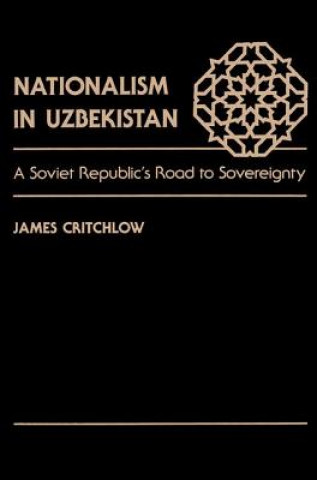
Delivery
Shopping guide





Doesn't suit? No problem! You can return within 30 days
 Gift voucher
any value
Gift voucher
any value
You won't go wrong with a gift voucher. The gift recipient can choose anything from our offer.
Nationalism in Uzbekistan
 English
English
 230 b
230 b
 Delivery to Austria
Delivery to Austria
30-day return policy
You might also be interested in


Drawing from a wide range of Uzbek and Russian sources, James Critchlow analyzes significant developments leading up to Uzbekistan's declaration of sovereignty and examines the outlook for the republic's emergence as an independent international player. The author's primary focus is on the Uzbek elites' attitudes and their efforts to throw off Moscow's hegemony by using popular grievances to mobilize mass support against the central Soviet government. Critchlow traces local grievances to two roots. The first is Uzbekistan's decades-long economic exploitation by Moscow through the imposition of an intensive cotton monoculture, the accumulated effects of which have been massive environmental degradation, illness, and death. The second is the central government's failure to adequately compensate Uzbekistan for these hardships and for the republic's overall contribution to the Soviet economy, while having further impoverished Uzbeks by limiting the range of their cultural and political expression. Among the manifestations of Uzbek resistance explored here are protests against russification and compulsory military conscription; persistent and open adherence to religious traditions; and loyalty above all to local political, ethnic, and family ties-- which frequently has led Moscow to charge the republic's leadership with "nepotism" and "corruption". Now that their campaign for sovereignty has triumphed, will Uzbek leaders be able to solve the knotty political and economic problems their republic still faces? The analysis offered here illuminates this question and suggests possible answers.
About the book
 English
English
Categories


 Contact
Contact How to shop
How to shop


































